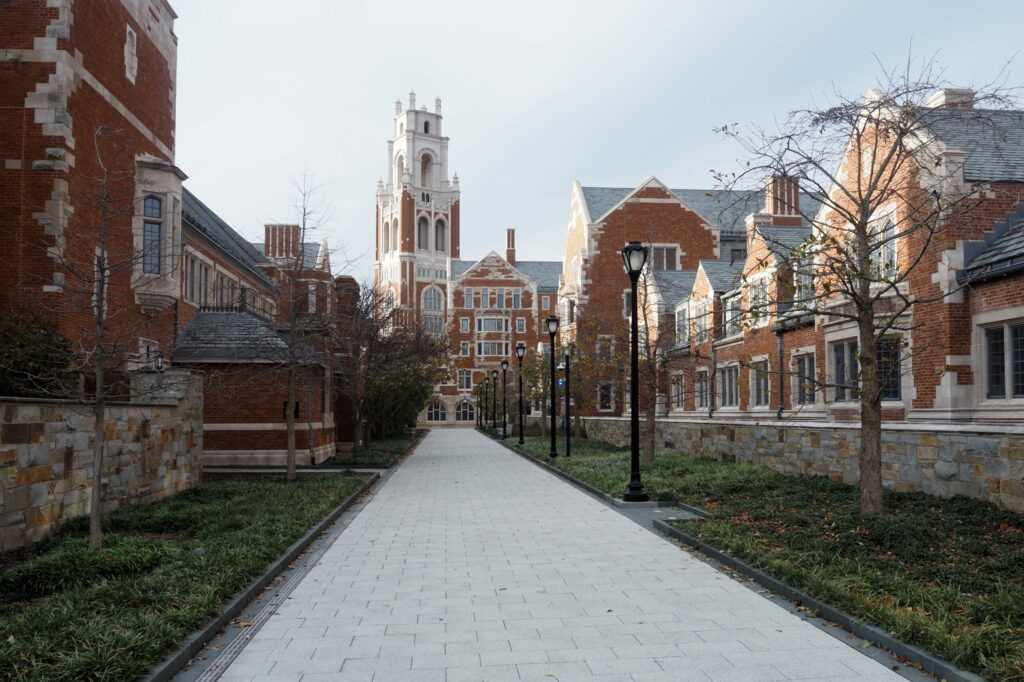Aron Ravin ’24: Yale Needs to Fix its Ideological Uniformity Problem
January 4, 2024
By Aron Ravin ’24
Eight. That’s the number of Republicans that the Buckley Institute was able to identify among Yale’s academic faculty.
An organization dedicated to preserving and promoting free speech and intellectual diversity at Yale, the Institute reasonably sought to assess the extent to which the political beliefs of Yale professors vary. Its research spanned five departments — Economics, History, Philosophy, Political Science, and the Law School — and covered 306 individual faculty members. Not only do over a quarter of undergraduates receive majors in the first four departments, but these five fields are arguably the departments where representation from conservatives is most direly needed.
This study corroborates prior reporting by the Yale Daily News. In 2020, the News found that only 65 out of 11,814 financial contributions made by faculty in the previous seven years went to Republican-affiliated candidates and organizations. Under 1%. 98% were made in support of Democrats.
These data are staggering and concerning. As the Buckley Institute’s report points out, about 29% of Americans are Republican and 40% are politically unaffiliated.
Upon learning of the discrepancy between campus politics and American politics, more liberal students and staff are often surprised. Nevertheless, they are prone to brush them off as inconsequential or caused by a supply problem, rather than some systemic flaw in university hiring practices.
The suggestion that Yale’s disproportionately large Democrat population is a symptom of macro trends is tenuous at best. According to Pew Research, 61% of Americans with postgraduate academic experience lean Democrat. While this is a good bit more than a majority, it does not come close to explaining why 83% of the professors in these Yale departments are Democrats. Similarly, the National Association of Scholars found that, at other top universities, the Democrat-to-Republican ratio of economics faculty was about 3:1. Though pitifully low, Yale’s Economics Department is far more pathetic. We have 25 Democrats and… 0 Republicans.
All of the evidence implies that this is a Yale problem. The liberal dominance is not caused by some bottleneck problem. If a particular faith, gender, class, or race was overrepresented in such an outrageous way, activists would be indignant (and rightfully so). They’d demand an overhaul of the hiring process, an investigation into potentially discriminating policies, and a replacement of the university’s human resources team. Left-wingers recognize a truth that conservatives often overlook: underrepresentation yields echo chambers. It makes the otherization of outsiders and discrimination against minority groups easier. Beyond the harm that this conflict creates, it also hampers the pursuit of light and truth that the academy supposedly treasures. That a plurality of perspectives promotes productive discourse is almost tautologically true.
That said, an affirmative action policy for conservative applicants relies on discrimination and sacrifices merit, an unacceptable tradeoff for an esteemed institution of higher learning like Yale.
Yale should utilize its name and immense endowment to attract talented professionals. There is a constant flow of conservatives entering their twilight years in the public sector, who surely would love a comfortable retirement job at a place as prestigious as Yale. Relatedly, think tank scholars are notoriously underpaid, considering their qualifications. There is no reason why Yale could not enter a partnership with organizations like the Manhattan Institute or the American Enterprise Institute. Stanford’s relationship with the Hoover Institute seems like a replicable model. Successful initiatives like the Brady-Johnson Program in Grand Strategy appear to be guided by a similar philosophy. The program is independently endowed and designs its curriculum around lectures from professionals outside of New Haven and across the political spectrum.
For whatever reason, the current tenure system is inadequate. Perhaps the lack of ideological balance is due to intentional discrimination from hiring staff. Maybe it is because of the problems associated with requiring professors to receive approbation from current faculty to be tenure-tracked, a practice that encourages insulation and nepotism.
The ultimate cause of the political disparity is inconsequential. If Yale’s administration is serious when it says it cares about viewpoint diversity, it will need to attract new talent through innovative means.
The reality is that the status quo is unsustainable. Yale will continue to be maligned as elitist and out-of-touch if it continues to neglect conservative constituents. Independent and Republican students will continue to self-censor out of fear of biased grading. And, as Bill Buckley prophesied decades ago, the donations will start to dry up if Yale ignores the criticism of its well-meaning alumni. Before it’s too late, Yale needs to act.
Aron Ravin ’24 is a senior at Yale University and served as the Buckley Institute’s student engagement director.
